His pulse surging through every fiber pushed rhythmically against me as we leaned back-to-back the other day.
Sitting back-to-back was something I’d done often with other Marines during some of our times afield, the barren countryside bereft of chairs reclining or otherwise. When waiting – there were times when the waiting seemed endless – our choices were to lie on the ground, sit in a spine-tiring forward lean, or sit upright and lean back on our elbow-locked arms.
It was most comfortable and comforting to sit while leaning back-to-back with a Marine of approximate similar size.
There was comfort because our backs shared the stress of sitting upright on the ground, thereby removing pressures from our tired muscles and joints.
The comforting part was because it was an indication that another Marine literally had my back in a way those of family and brotherhood can ever understand.
And then, the big old oak tree down near the spring by the pasture fence-line heaved a grand sigh as we leaned against each other the other day to watch, hear and feel spring’s approach. We’ve made each other comfortable and have been comforting often during recent years, the oak taking time from its busy schedule of guarding the lower part of the ridge from whatever might be approaching from the creek in the valley below.
The mighty old tree had been working on that spot for nigh a century or so before my arrival, its grand trunk split on its north side in an apparent friendly invitation to squirrels and maybe a mystical gnome or two. Lesser trees would know its demise by such a gap in its lower trunk, but it’s long healed with bark solid still clothing the oak on any spots exposed to my sight.
Its south side is that perfect place I’ve found to share its lean, us supporting each other. But unlike with those Marines, neither of us is waiting to go anywhere.
We’re perfectly content to have gentle conversations carried on each whisp of late-winter air, the oak telling me about how its sap and the sap of all the nearby trees has thawed to life and again pulses through their veins.
We watch together as a couple of nearby aspens start to show buds which, in a few days, will open to expose the season’s first leaves.
And I watch the oak release the final handful of last year’s gold-brown leaves it held tightly through the winter; they pirouette toward the duff to feed another season of life.
The oak and I together hoped for its own buds to appear soon enough and provide another plentiful crop of leaves and acorns.
We feel warmth of the mid-March sun hanging ever-higher in the afternoon sky, us appreciating how this grand globe is being tilted ever-so-slightly to make us cheer the light’s warm massages.
Wonder is offered about when the concern will be how much shade the old tree can offer on the hottest of summer days.
We ask each other how we’re feeling. I hold my right hand high and spread it to the azure sky to compare my aging digits with the oak’s gnarled twigs and branches.
We laugh as the oak invites me back into boyhood dreams of climbing high onto its sturdy branches for me to appreciate the view from my grand old friend’s heights.
We share joys and losses of recent and past; we laugh and we allow tears to flow.
But mostly, we quietly and simply sit back-to-back, each feeling the other’s pulse flowing rhythmically through our beings.
I quietly inhale the oak’s exhales and it quietly inhales my exhales
There will be a day not so long from this when one of us no longer will be there for the other. I suspect I’ll be the one who’s first to not show up and lean my back into the oak’s strength, it having felt the backs of several generations of transients like me.
But, there’s always that chance that I’ll someday look down from our old farm-house on this ridge and see that life’s forces have taken the oak to its demise ahead of me – a worry that’s not of concern on one of those sunny March days when I’ve made time to sit back-to-back with that favorite tree.
— Scott Schultz
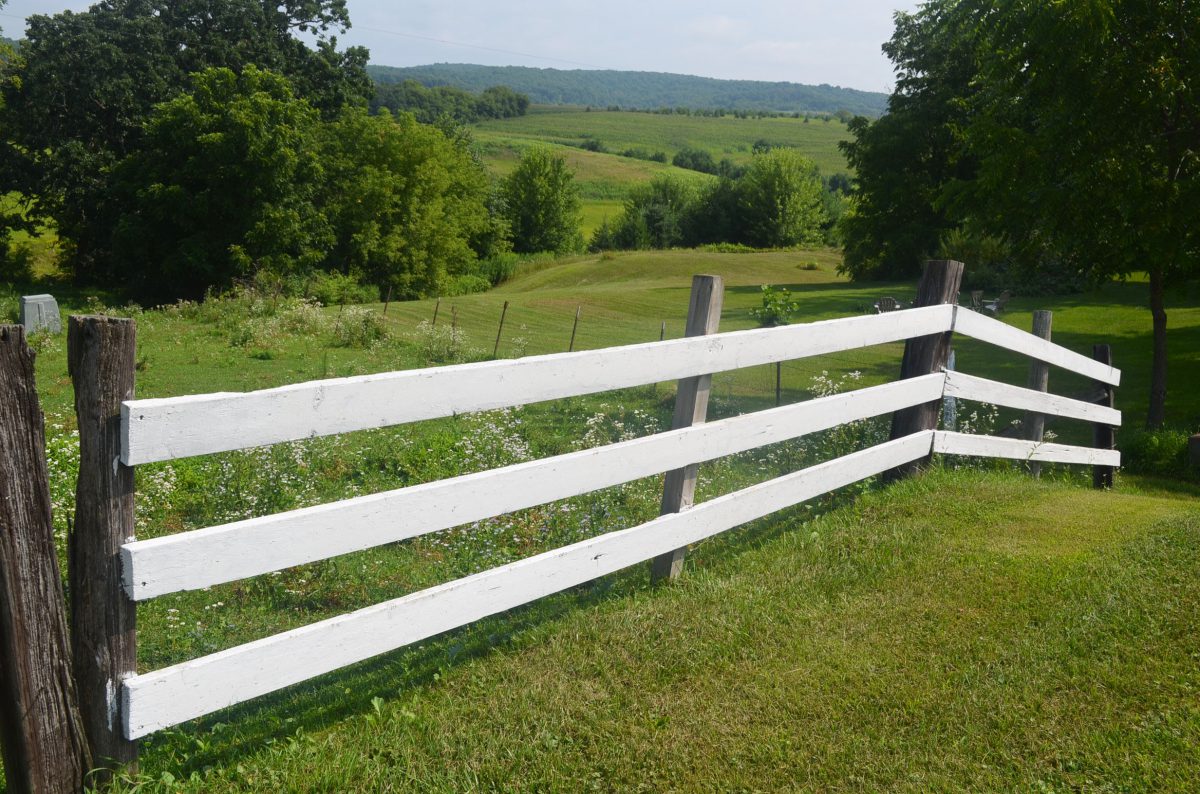
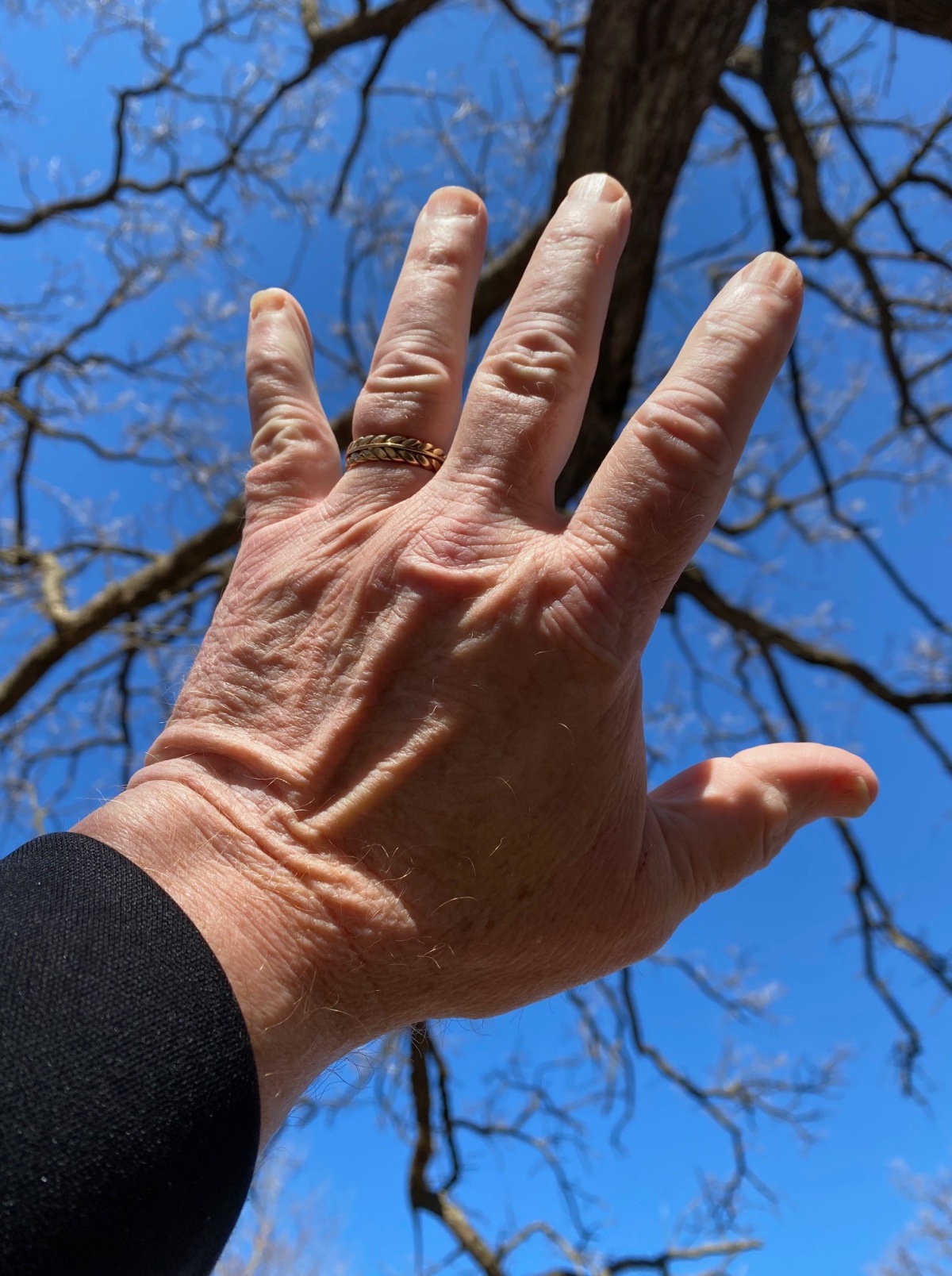
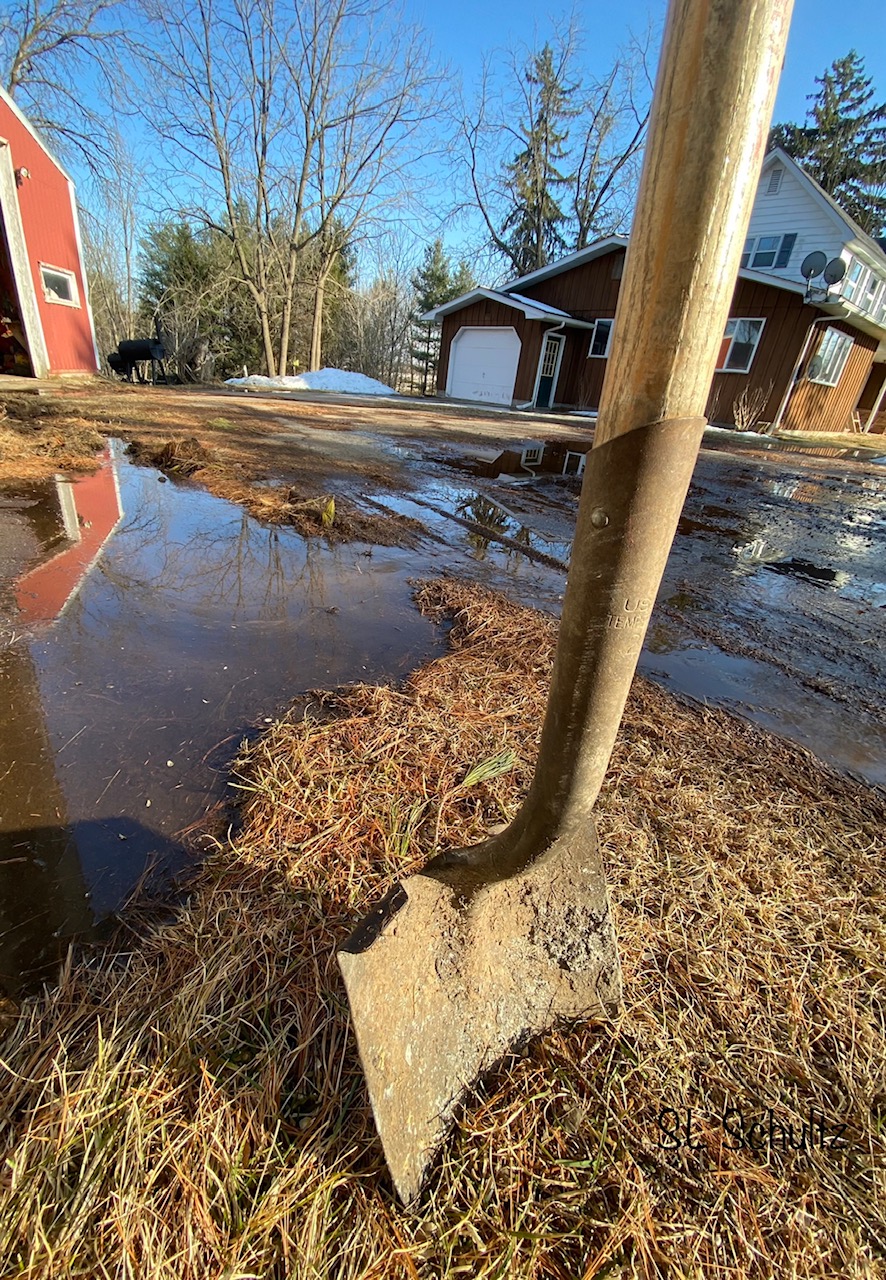


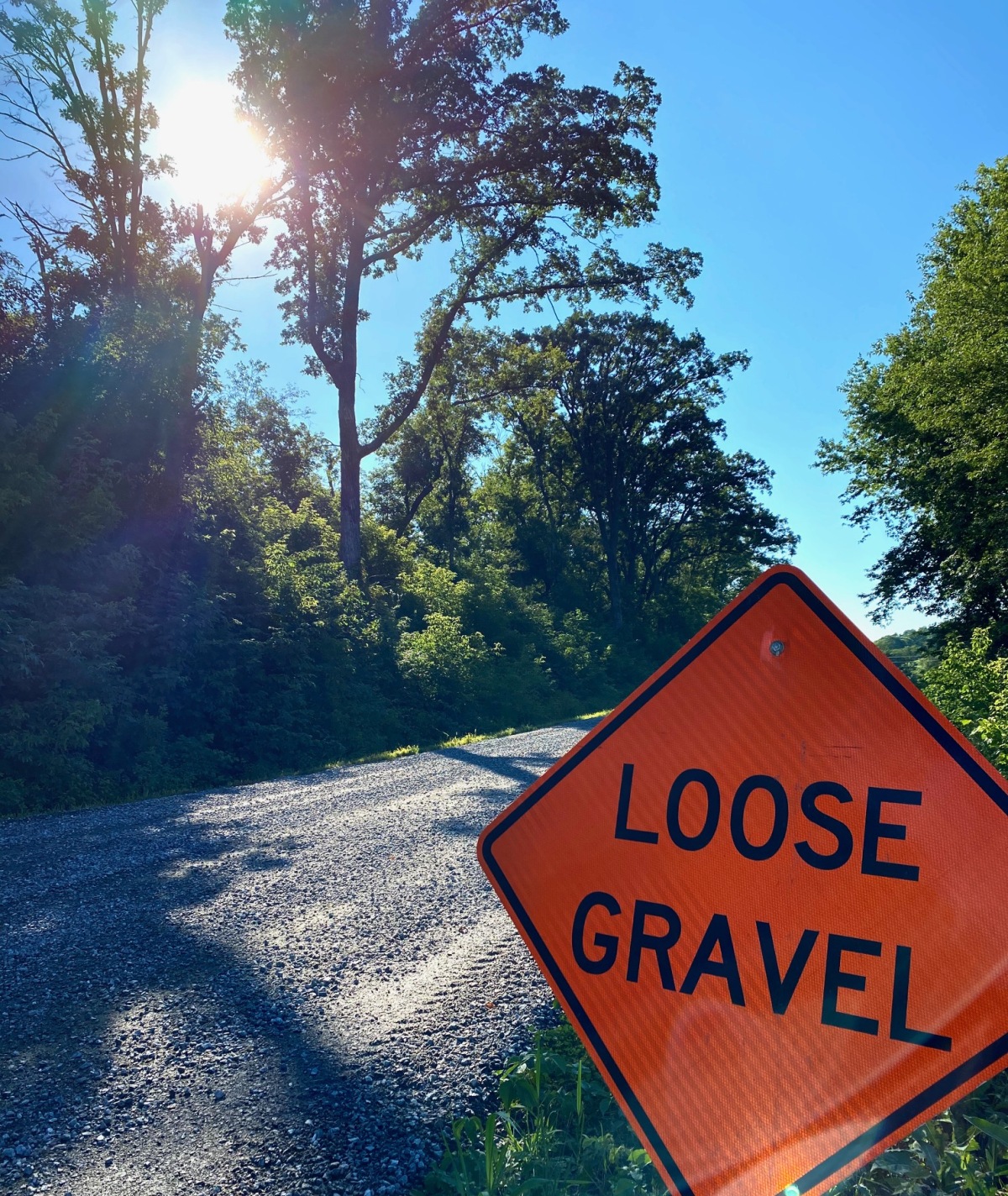
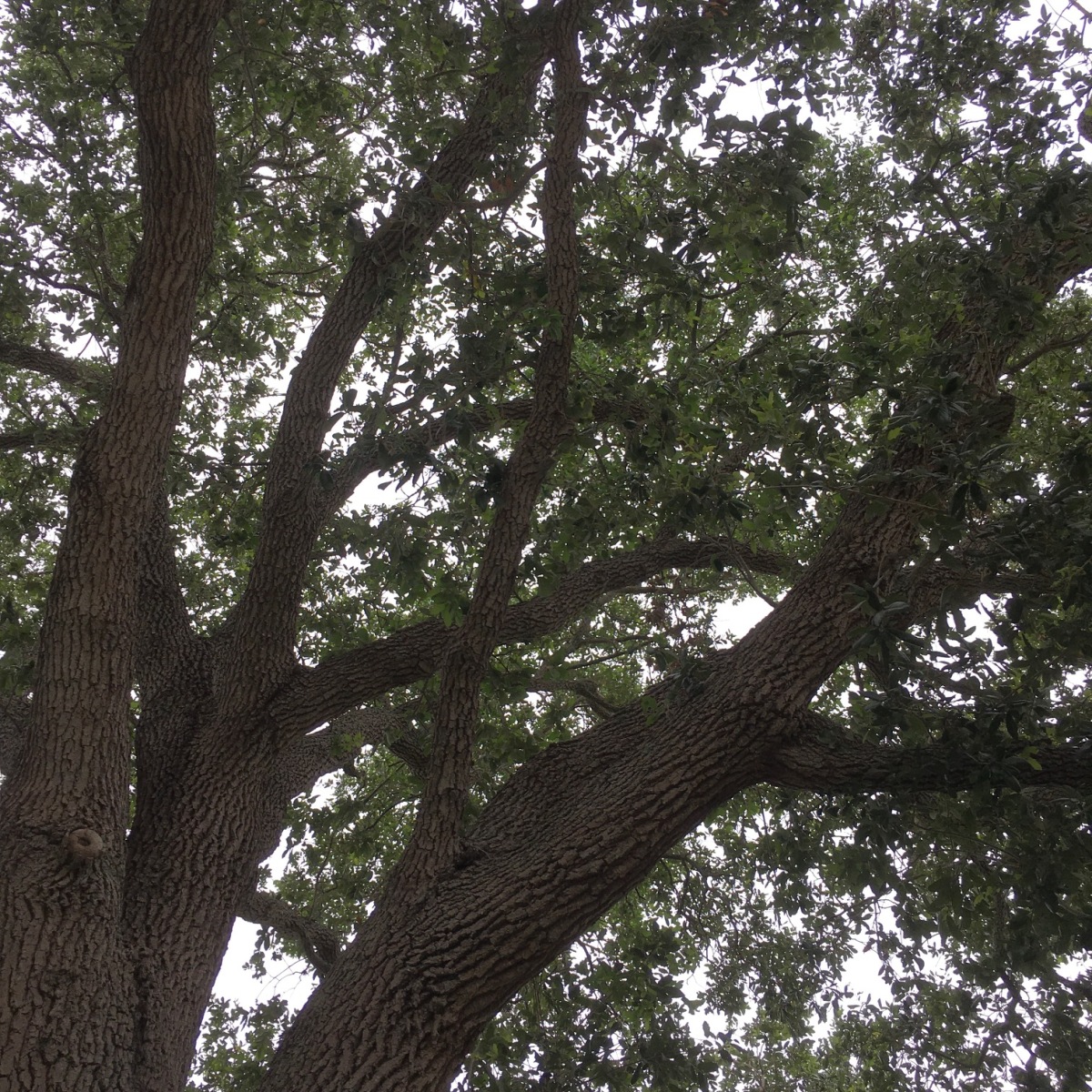
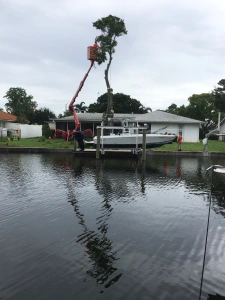
 dded chickens, ducks and turkeys to our small farm’s menagerie and immediately didn’t see eye-to-eye – especially on that morning when I was woken by a chicken’s squawking right below our bedroom window. The sunrise was just tickling the ridge’s east horizon when I leapt from bed to see what was going on. That’s when I literally locked eye-to-eye with a fox standing immediately below the bedroom window, it holding a mouthful of tail-feathers from the chicken that had escaped its grasp.
dded chickens, ducks and turkeys to our small farm’s menagerie and immediately didn’t see eye-to-eye – especially on that morning when I was woken by a chicken’s squawking right below our bedroom window. The sunrise was just tickling the ridge’s east horizon when I leapt from bed to see what was going on. That’s when I literally locked eye-to-eye with a fox standing immediately below the bedroom window, it holding a mouthful of tail-feathers from the chicken that had escaped its grasp.